The second day of our Easter break we planned to explore the Catlins, the area in the southeast corner of the South Island. We had seen some of this area on one of our previous visits to New Zealand but hadn’t had time to visit everything we wanted to see.
Our first stop was Cathedral Cave, a ‘V’ shaped sea cave that is almost 200 metres long. As with the Moereki Boulders the previous day we needed to time our visit carefully to within an hour or so of low tide. Luckily for us low tide was around lunchtime and so we were able to arrive in time to catch the tide.
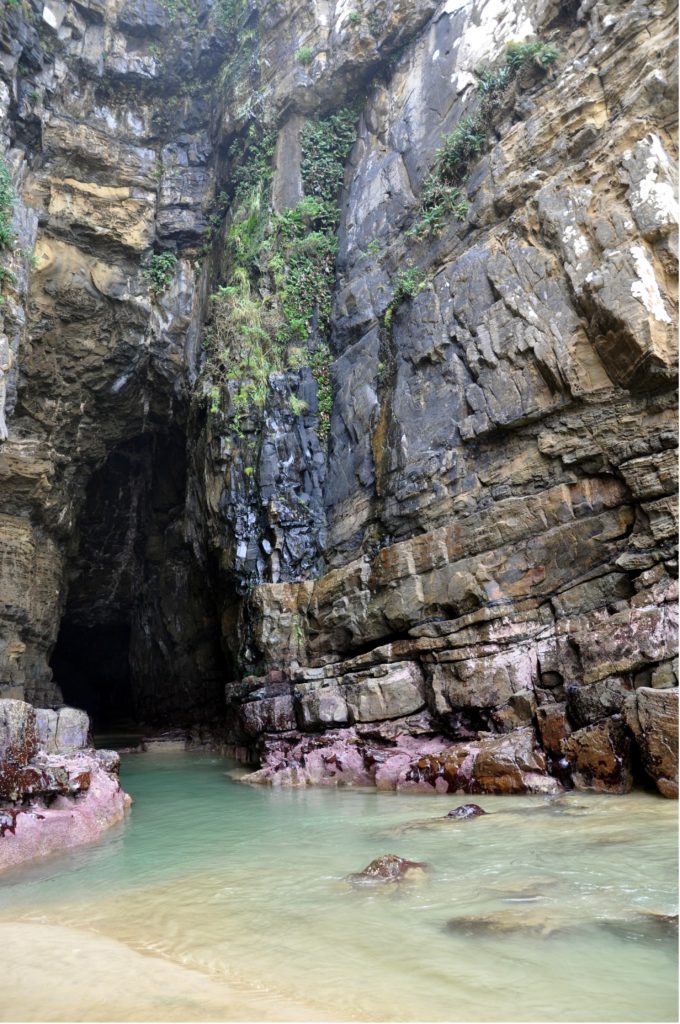
Despite arriving right at low tide and walking quickly down the long winding path through the bush to the beach the water was already lapping at the entrance of the cave when we arrived.
Nevertheless we rolled up our trousers and when the timing of the waves looked good we made a dash around the rocks into the cave. Despite being around eight metres wide at the entrance and nearly twenty metres tall, the cave quickly narrows to a small crack which leads to the second arm of the cave.
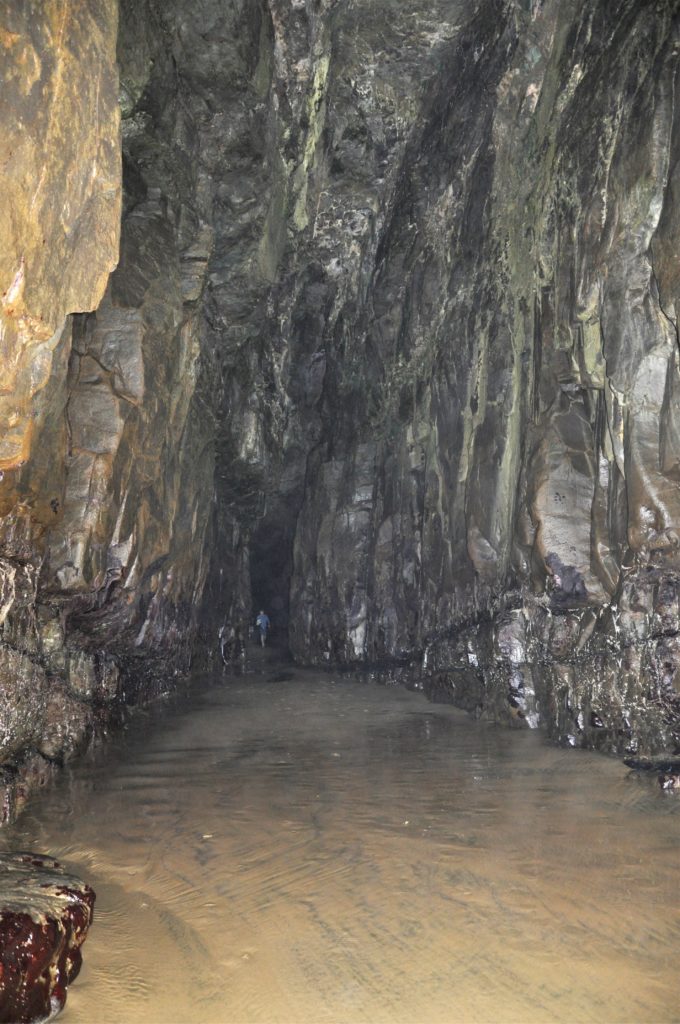
We continued through the narrow passageway that opened out into the second portion of the cave, which was luckily a little drier than the first arm.
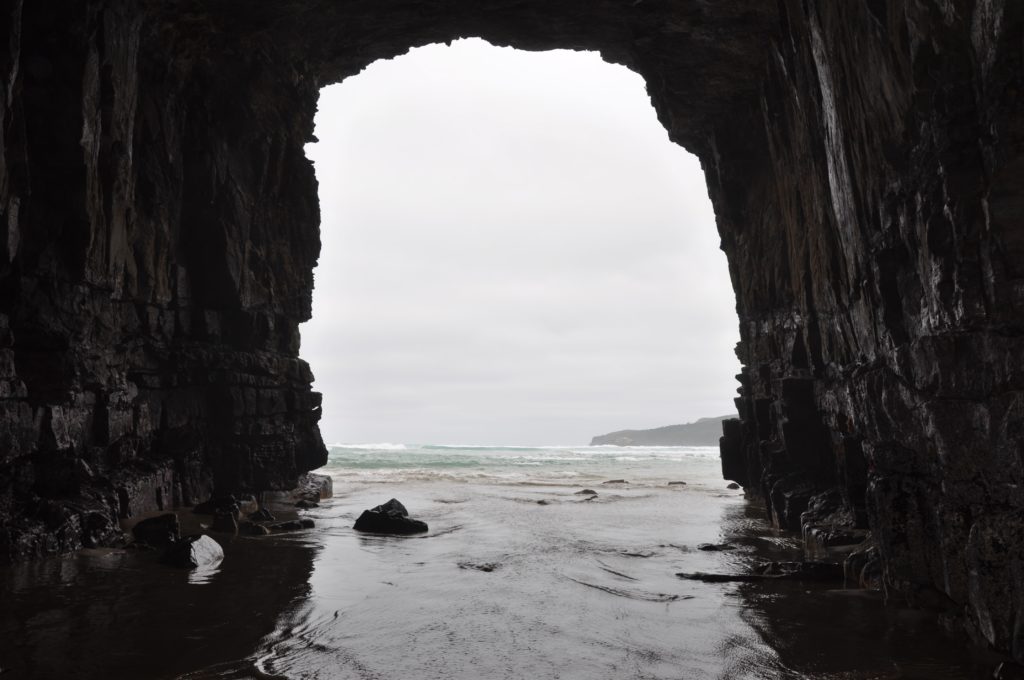
This arm of the cave lead to another huge entrance that was already getting starting to get close to the incoming waves. Walking through the cave it was easy to see why this was one of the thirty longest sea caves in the world. We enjoyed exploring, but with the tide rising quite quickly we decided to retrace our steps and head out to the beach to enjoy our picnic.
We headed back to the car and continued on along the coast to our next stop, Curio Bay. Curio Bay is in fact a large wave cut platform that is exposed at low tide.
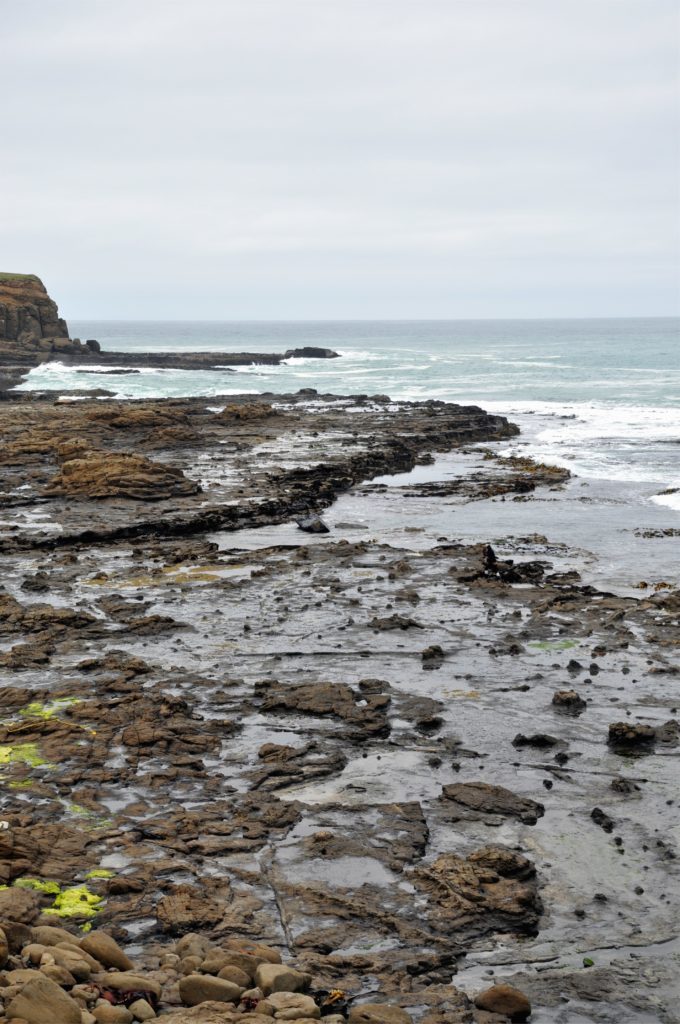
As the tide recedes the remains of a fossilised ancient forest can be seen amongst the tide pools. Looking down from the viewing platforms it was easy to see the long lengths of fossilsed timber laying across the rock shelf below us.
We headed down to explore the rock pools as well as the petrified wood. It was still possible to see the grain on much of the timber and it was even possible to count the rings on some of the stumps that stuck up out of the rocks.
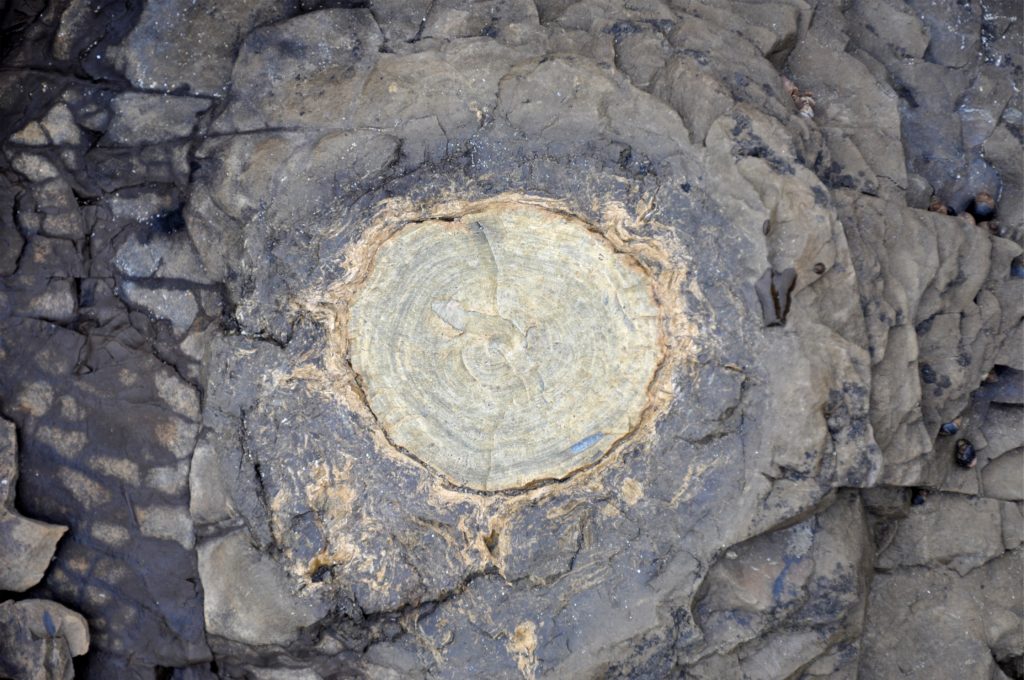
We spent a while hopping around the rocks, trying to avoid the puddles and taking a look at the different tidal pools and areas of petrified wood before heading just around the headland to our next stop, Porpoise Bay.
